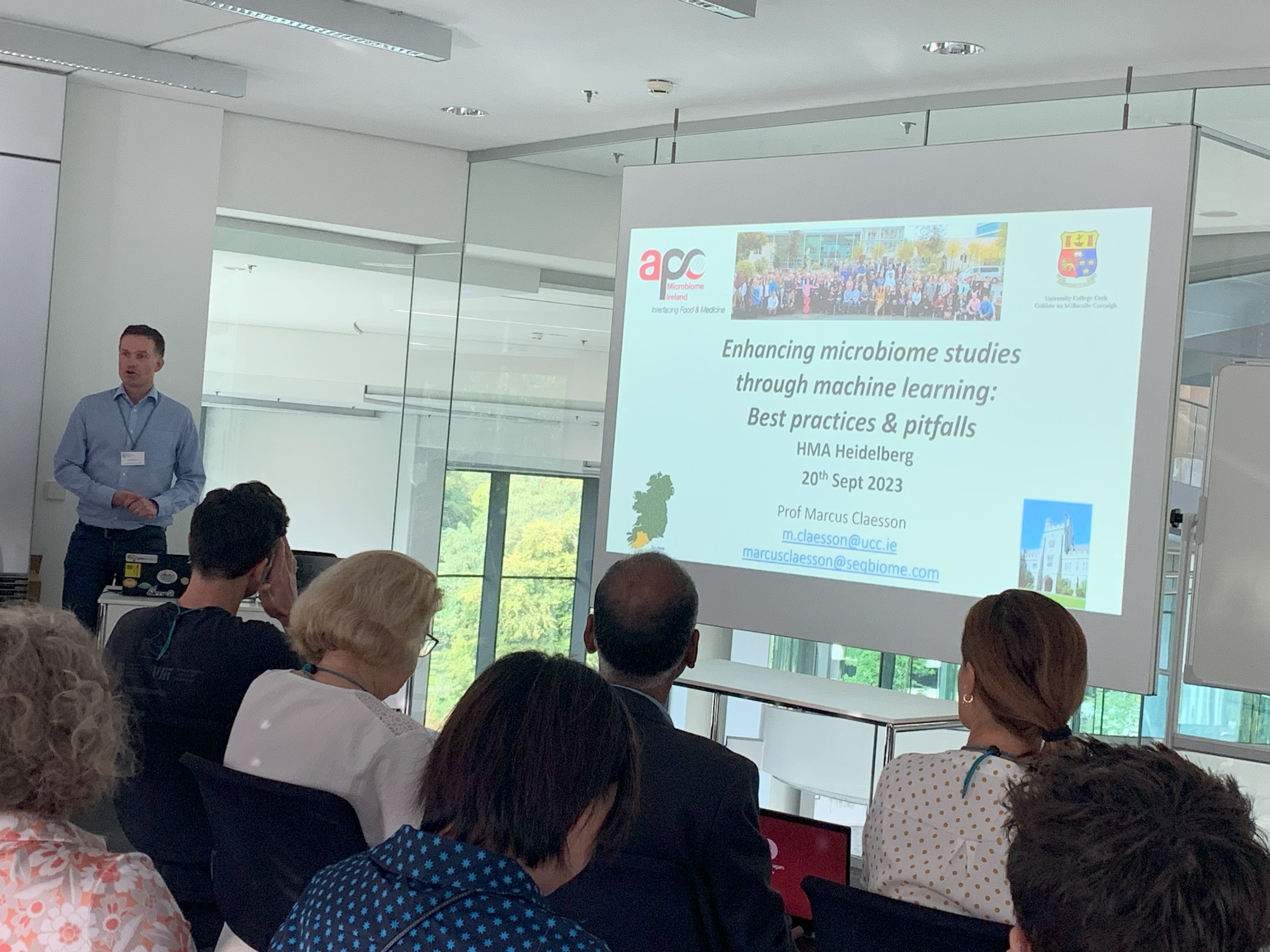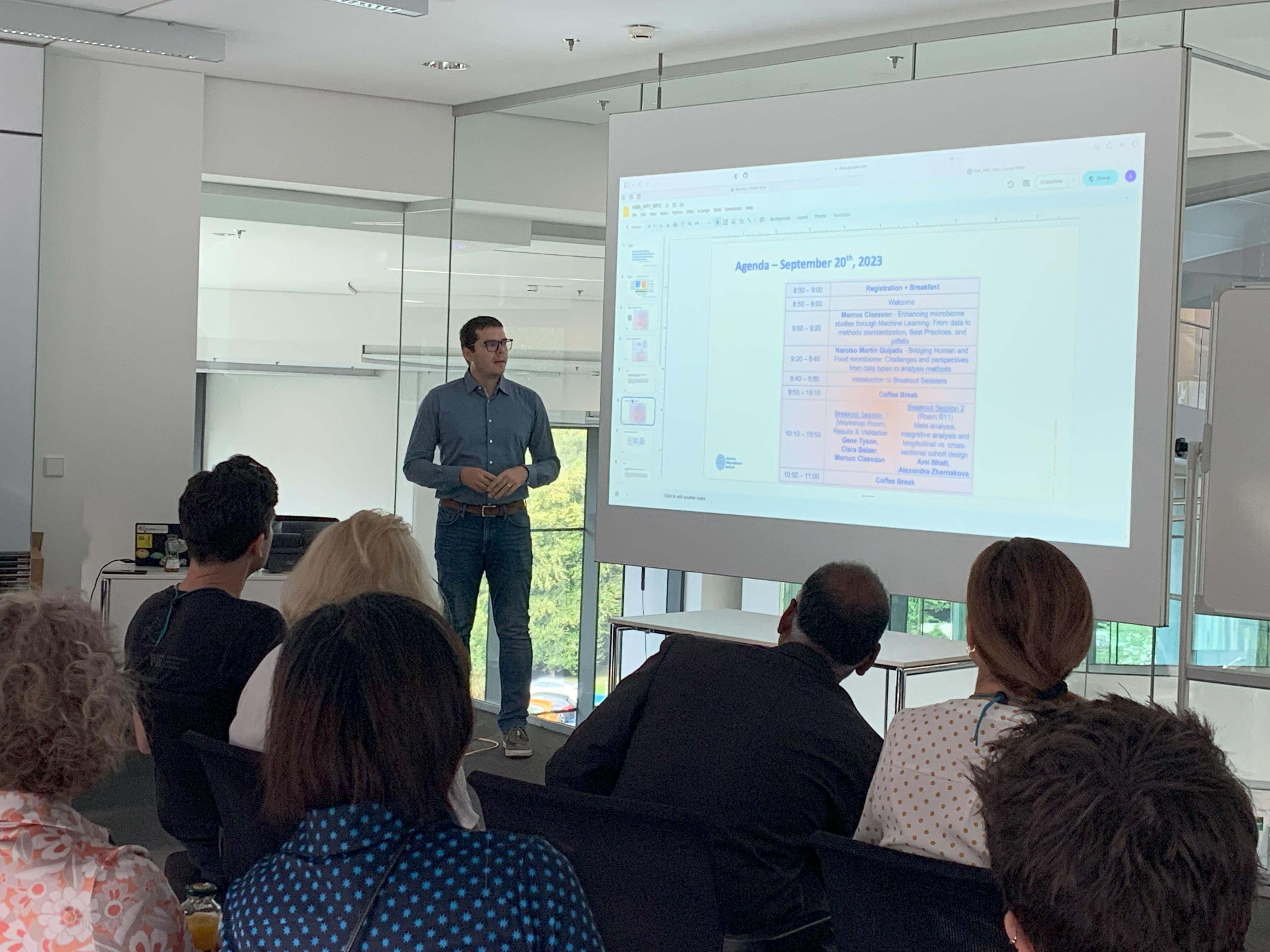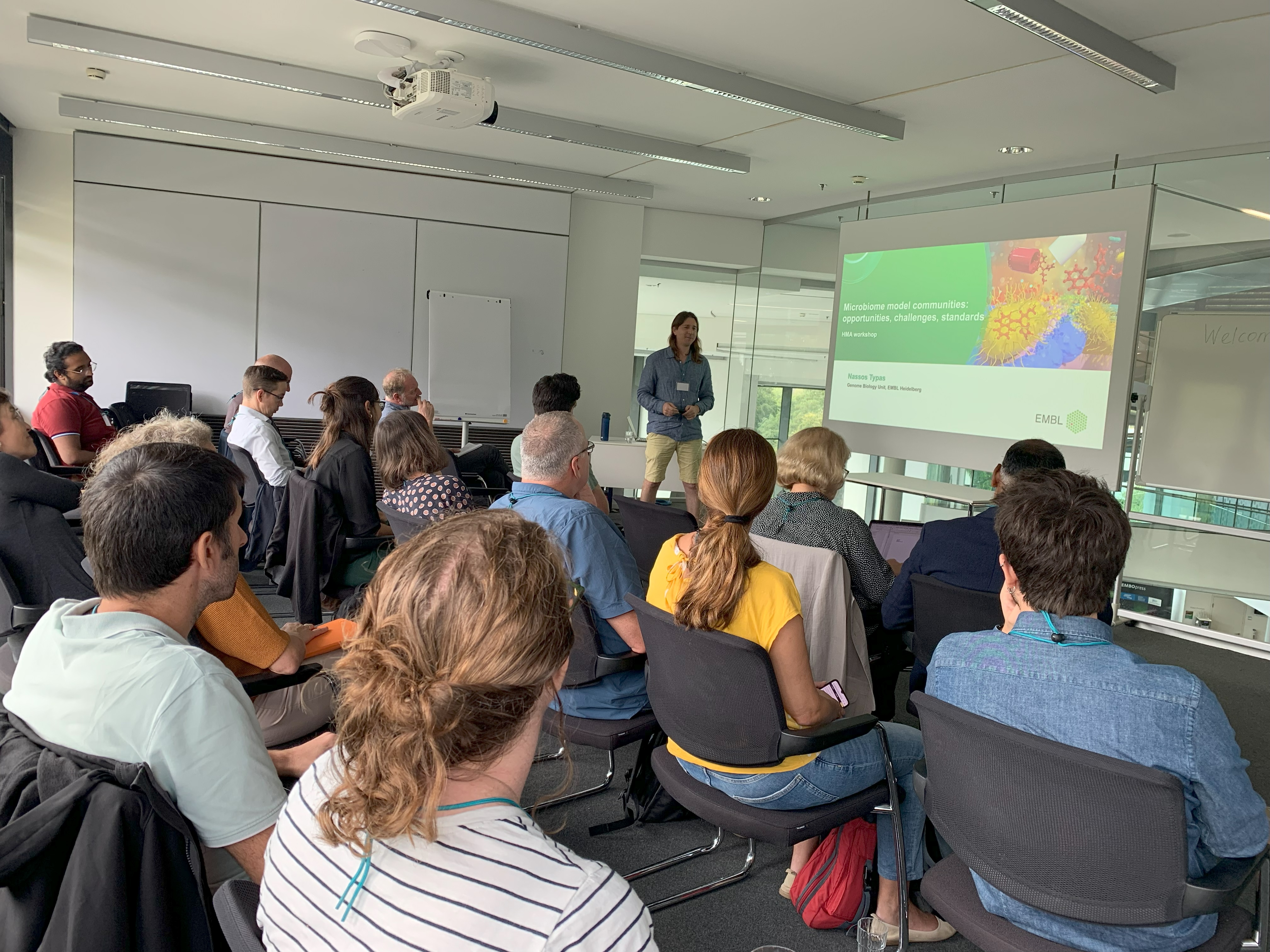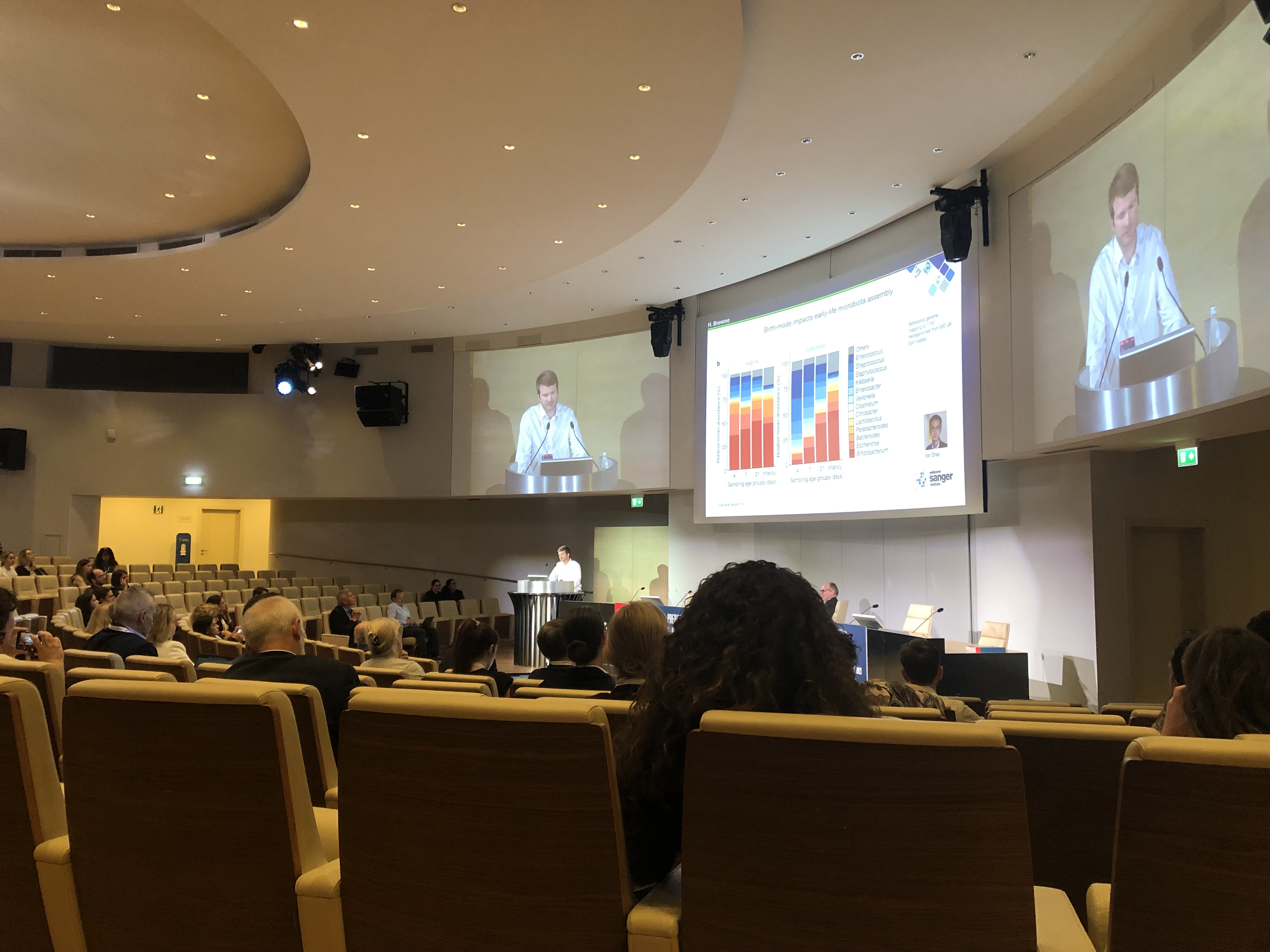Advancing Microbiome Research: Highlights from the Workshop on Establishing Consensus for Microbiome Analysis Standards
The recent Workshop on “Establishing Consensus for Microbiome Analysis Standards” held on September 20th, 2023, at the Advanced Training Center (ATC) of the European Molecular Biology Laboratory (EMBL) in Heidelberg, Germany, marked a pivotal moment in the journey of the Human Microbiome Action project. Bringing together 25 distinguished experts in the field of human microbiome research, particularly those specializing in the analysis of shotgun metagenomics data, the workshop was a collaborative effort to enhance the future of microbiome analysis.
Human Microbiome Action is dedicated to combatting the epidemics of chronic diseases by building a strong network of professionals committed to advancing European microbiome research and innovation. Central to this mission is the establishment of standardized practices that maximize the impact of our work.
The workshop’s primary objective was to foster practical and insightful discussions on emerging trends in microbiome analysis, with a particular emphasis on defining minimum requirements and standards for microbiome research. Special attention was dedicated to the complexities of multi-omic data analysis and meta- and integrative analyses.
Fostering Collaboration and Standards
The significance of public repositories that provide concise microbiome data for ensuring reproducibility of results was underscored. By convening experts dedicated to metagenomics data analysis from the human microbiome field, the workshop aimed to reach a shared consensus on microbiome analysis methods.
The workshop’s agenda was structured around several key topics, each with its dedicated session:
- Enhancing Microbiome Studies through Machine Learning: It was emphasized that the need for standards, best practices, and guidelines is crucial to ensure the correct utilization and interpretation of machine learning algorithms within the microbiome field.
- Bridging Human and Food Microbiome: This session explored the potential to adapt existing standardized techniques or methods developed for edible goods to the Human Microbiome, highlighting the synergies between these fields.
- Results & Validation: This session was focused on building consensus, with participants deliberating questions related to result evaluation, metagenomics assembly requirements, and the utilization of unified repositories.
- Meta-analysis, Integrative Analysis, and Longitudinal vs. Cross-sectional Cohort Design: This panel focused on achieving consensus regarding the conduct of meta-analysis, comparing longitudinal and cross-sectional research designs. The session also addressed the integration of molecular genomic analysis.
Conclusion
This workshop holds substantial relevance for researchers and practitioners immersed in the realm of human microbiome studies. Standardizing microbiome analysis methods is not merely a matter of procedural uniformity; it is a fundamental necessity for data sharing, comparability, reproducibility, and the development of best practices in our community.
The outcomes of the workshop hold far-reaching implications for the broader scientific community. By establishing standardized microbiome analysis methods, we are poised to improve data quality, facilitate meaningful research, and unlock novel insights in the microbiome field. This endeavour will benefit not only researchers but also clinicians and institutions engaged in microbiome studies, promising to elevate the quality and impact of our collective work.





